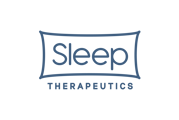Are Frequent Headaches Linked to CPAP Use? Exploring the Connection.
Living with sleep apnea can be challenging, and many individuals rely on Continuous Positive Airway Pressure (CPAP) machines to help manage their symptoms. While many individuals experience relief and improved sleep quality using a CPAP machine, some may report headaches as a side effect. In this article, we'll explore the potential connection between CPAP use and headaches and discuss ways to alleviate this discomfort.
Possible Causes of Headaches with CPAP Use
1. Pressure SettingsOne possible cause of headaches during CPAP use is incorrect pressure settings. If the pressure is too high, it can lead to discomfort and headaches. It is crucial to work with your sleep specialist to find the appropriate pressure settings for your specific needs.
2. Mask FitAnother potential source of headaches is an ill-fitting CPAP mask. A mask that is too tight can cause pressure on the face, leading to headaches. On the other hand, a mask that is too loose may not maintain an adequate seal, resulting in air leaks and reduced treatment effectiveness. Ensuring a proper mask fit is essential for both comfort and optimal therapy.
3. Sinus CongestionCPAP users with sinus congestion may experience headaches due to increased air pressure in the nasal passages. This pressure can exacerbate sinus pain and lead to headaches. If you have a history of sinus issues, it is important to address them alongside your sleep apnea treatment. Consult with your healthcare provider about strategies to alleviate sinus congestion, such as using a saline nasal spray, taking decongestants, or incorporating a heated humidifier into your CPAP therapy.
4. Carbon Dioxide RetentionIn some cases, headaches may be caused by the retention of carbon dioxide during CPAP use. This occurs when exhaled air is not adequately vented from the mask, leading to a buildup of carbon dioxide in the mask and subsequently being re-inhaled. This can cause morning headaches and feelings of grogginess. Ensuring that your mask has a proper exhalation port and checking it regularly for blockages can help prevent this issue.
Tips to Reduce Headaches While Using CPAP
- Adjust Pressure Settings
If you suspect that your CPAP pressure settings are causing headaches, discuss this with your sleep specialist. They may recommend adjusting the pressure settings or trying a different type of machine, such as an AutoPAP, which automatically adjusts the pressure according to your needs. - Find the Right Mask
Work closely with your sleep specialist to find a mask that fits you comfortably and provides an adequate seal. A well-fitting mask can help reduce the likelihood of headaches and improve the overall effectiveness of your CPAP therapy. - Use a Humidifier
Adding a heated humidifier to your CPAP machine can help alleviate sinus congestion and dryness, which may be contributing to headaches. The humidifier adds moisture to the air you breathe, making it more comfortable for your nasal passages and reducing the risk of irritation. Consult your sleep specialist for guidance on incorporating a humidifier into your CPAP therapy and the appropriate humidity settings for your needs. - Maintain Good Sleep Hygiene
Practicing good sleep hygiene can help reduce the likelihood of headaches and improve overall sleep quality. Establish a consistent sleep schedule, create a relaxing bedtime routine, and make your sleep environment comfortable and conducive to rest. Avoiding caffeine and alcohol close to bedtime can also help prevent headaches. - Monitor and Address Sinus Issues
If you have a history of sinus issues, work with your healthcare provider to address these concerns in conjunction with your sleep apnea treatment. This may involve using saline nasal sprays, taking decongestants, or using a heated humidifier with your CPAP machine.
It's important to keep in mind that even though CPAP therapy can be an effective treatment for sleep apnea, some users may still experience headaches. However, by understanding the potential causes and working closely with your sleep specialist, you can find ways to alleviate discomfort and make the most out of your CPAP therapy.
